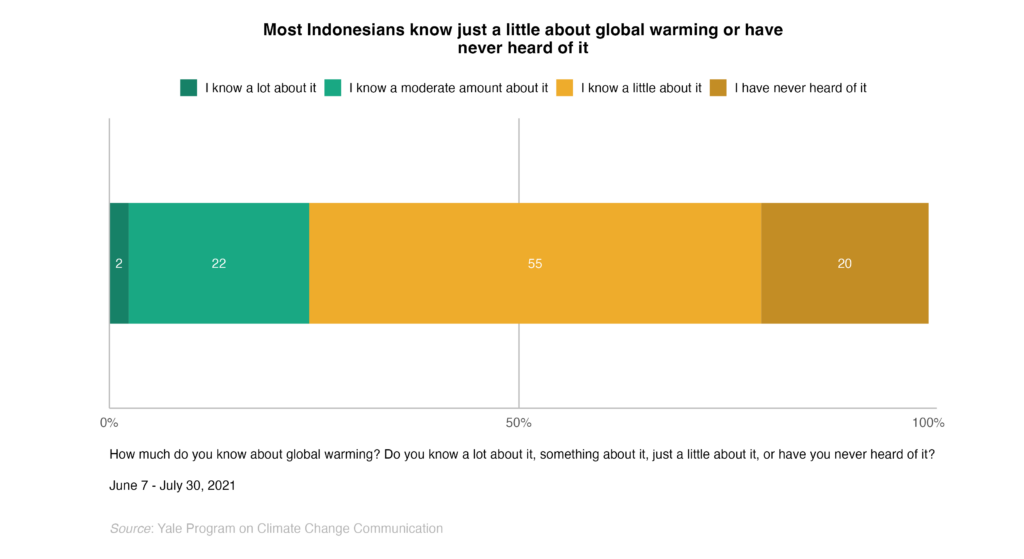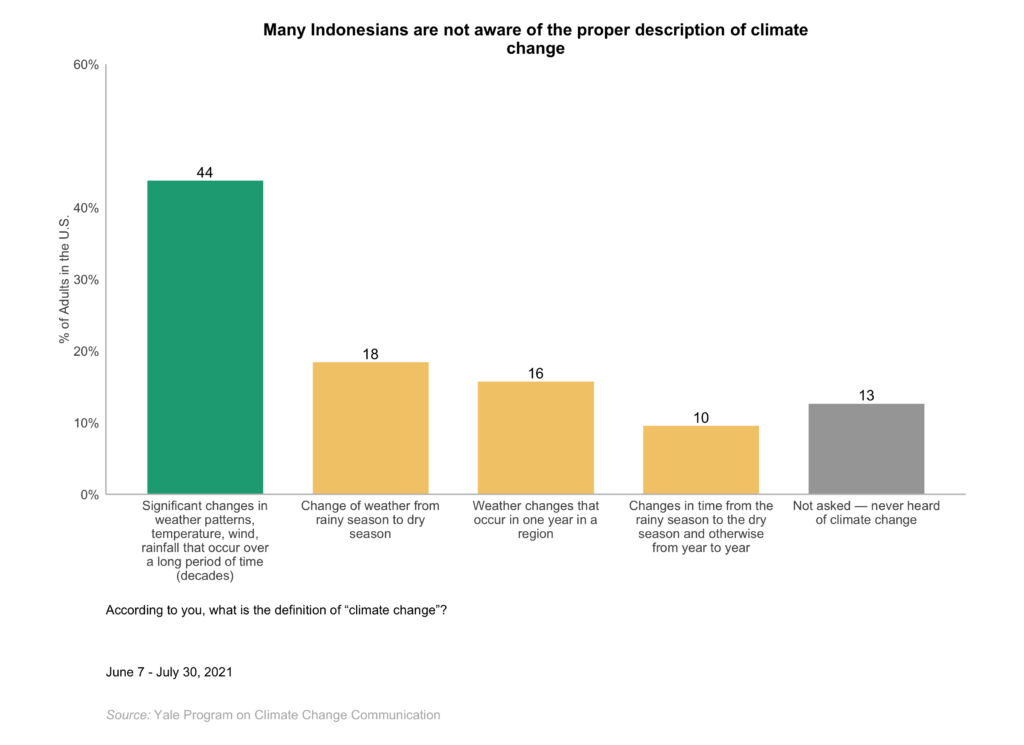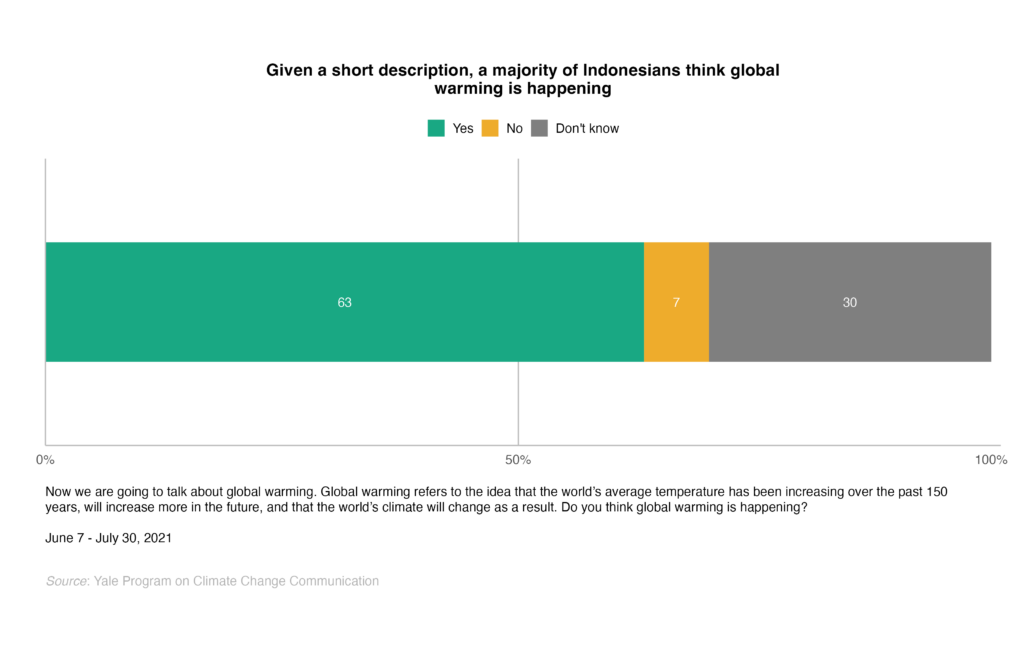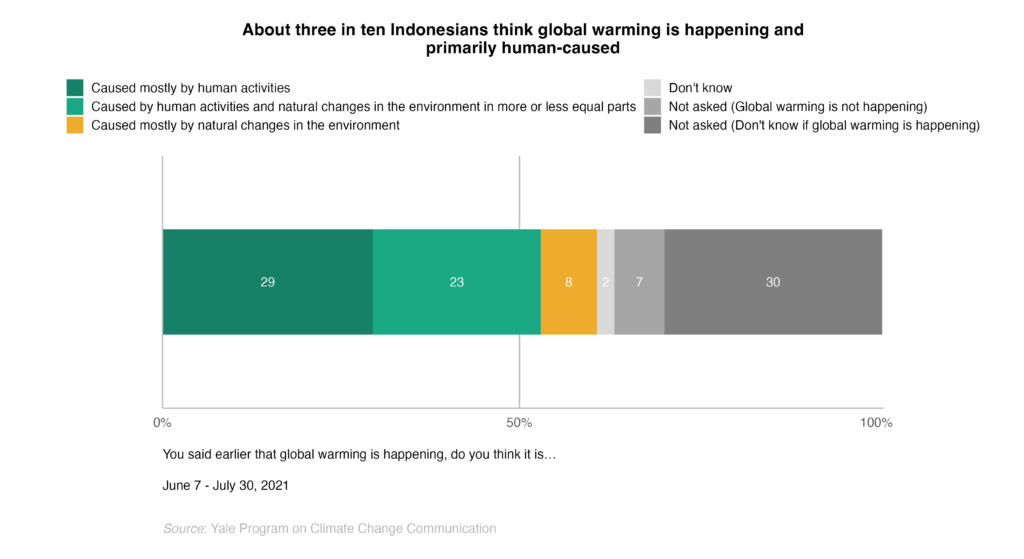Report · Oct 3, 2023
Climate Change in the Indonesian Mind
By Anthony Leiserowitz, Seth Rosenthal, Marija Verner, Sanguk Lee, Matthew Ballew, Jennifer Carman, Matthew Goldberg, Jennifer Marlon, Enggar Paramita, Mardiyah Chamim, Paramita Mohamad and Matthew Daggett
Filed under: Behaviors & Actions and Beliefs & Attitudes
1. Global Warming Awareness and Beliefs
1.1. Most Indonesians know just a little about global warming or have never heard of it.
Before receiving a description of global warming, respondents were asked how much they know about it. In that context, most people in Indonesia (76%) say they either know “a little” about global warming (55%) or “have never heard of it” (20%). By contrast, 22% of people in Indonesia say they know “a moderate amount” about global warming and only 2% say they know “a lot.”

1.2. Many Indonesians are not aware of the proper description of climate change.
Indonesians who said they know at least “a little” about climate changeWhile most items included in this report used the term “global warming,” this question used the term “climate change.” were then asked to assess four possible descriptions of it. 44% of Indonesians understand that climate change involves “significant changes in weather patterns, temperature, wind, and rainfall that occur over a long period of time (decades or more).” By contrast, 18% of Indonesians mistakenly thought climate change is “change in the weather from rainy season to dry season,” 16% thought it is “weather changes that occur in one year in a region,” 10% thought it is “changes in time of changing from the rainy season to dry season … from year to year.”

1.3. Given a short description, a majority of Indonesians think global warming is happening.
After being asked to assess their level of knowledge about global warming (Section 1.1) and the correct description of climate change (Section 1.2) without additional context, survey respondents were then provided with a short definition of global warming: “Global warming refers to the idea that the world’s average temperature has been increasing over the past 150 years, will increase more in the future, and that the world’s climate will change as a result.” Then they were asked, “Do you think global warming is happening?”
After reading the short definition, a majority of people in Indonesia (63%) think global warming is happening. By contrast, only 7% think global warming is not happening, while 30% don’t know.

1.4. About three in ten Indonesians think global warming is happening and primarily human-caused.
Survey respondents who indicated that they thought global warming was happening (Section 1.3) were then asked what they think causes global warming. About three in ten Indonesians (29%) think both that global warming is happening and that it is caused mostly by human activities, and an additional 23% think it is happening and caused more or less equally by human activities and natural changes in the environment. By contrast, only 8% think global warming is happening and caused mostly by natural changes in the environment, and 2% think it is happening but do not know the cause. Finally, as indicated in Section 1.3, the remaining 37% of Indonesians either don’t know if global warming is happening or think it is not happening.
